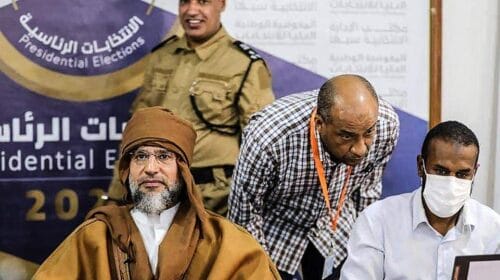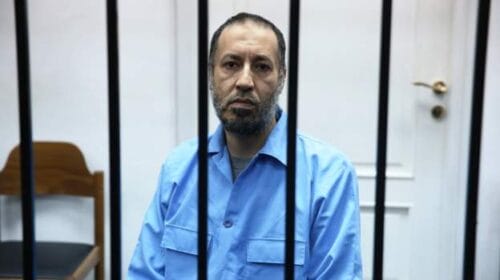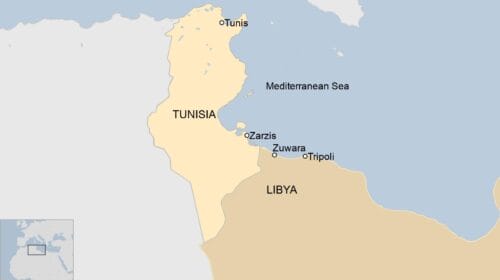Libya Crisis Becomes Focus of Presidential Race
Ambassador Christopher Stevens and three other diplomatic personnel died in a well-planned and executed assault on U.S. governmental interests in Benghazi, which was the birthplace of the counter-revolutionary war against the Jamahiriya in February of last year. The Obama administration sought to link the attacks by armed combatants on the consulate with protests then sweeping the Muslim world centered around the “Innocence of Muslims” film posted on the internet.
However, information soon reached the public that there was no demonstration outside the buildings where Stevens and the others were hold up. Despite this intelligence being relayed to Washington, Susan Rice, U.S. Ambassador to the United Nations, appeared on several nationally televised press briefings denying that the attack was planned and that there was no foreknowledge of the security risks conveyed to the State Department.
On October 14, CBS Face the Nation devoted a segment of their Sunday morning program to a discussion about the political fallout in the aftermath of the September 11 Libyan operations. Senator Lindsey Graham, Republican of South Carolina, noted when asked by host Bob Schieffer about the refusal of the administration to acknowledge that this was a military assault, that “They’re trying to sell a narrative, quite frankly, that in the Middle East, the wars are receding and al Qaeda has been dismantled, and to admit that our embassy was attacked by al Qaeda operatives and Libya leading from behind didn’t work I think undercuts that narrative.” (Face the Nation transcript, cbsnews.com, October 14)
Graham later said that “The intelligence community on the ground in Libya has told Senator Corker and myself that within twenty-four hours, they communicated up to Washington that this was a terrorist attack. The president of Libya on the same date said it was a terrorist attack.”
The administration refused to send a representative to the Face the Nation program on October 14. Congressman Elijah Cummings, Democrat of Maryland, appeared on the same CBS program in a vain attempt to defend the administration’s position.
Cummings, being provided with no new information from the President’s office or the State Department, sought to discredit the Republican criticism by saying that it was designed to damage Obama’s re-election prospects. Obama, who was reported at the time to be tied with or slightly behind former Massachusetts Gov. Mitt Romney in the polls, had refrained from making additional comments on the Libyan attacks in the days leading up to the debate on October 16.
Cummings pointed out that the Republican-dominated House of Representatives had “in fact, cut the budget for security, and I’m hoping that they are going to join me—in that hearing I’ve requested that he join me in getting an emergency supplemental for our embassies so that we could protect our people.”
Imperialist War Real Source of Instability in Libya
Yet the real reasons behind the deteriorating security situation in Libya lies with the results of the imperialist war waged there during 2011. The U.S. and NATO trained, armed, funded and coordinated the rebels who fought against the government and people of Libya.
After the passage of United Nations Security Council Resolutions 1970 and 1973, the U.S., NATO and its allies in the region began a seven month bombing campaign on March 19. By late October, 26,000 sorties had been flown with at least 9,600 bombs dropped on this country of approximately six million people.
Millions of Libyans were impacted by the war through the deliberate destruction of the national infrastructure. Along with a naval blockade imposed against the Gaddafi government, over $US160 billion in foreign assets belonging to Libya were seized by western banks.
News reports have estimated that from 50,000-100,000 people were killed during the war. Thousands of Libyans and foreign nationals were imprisoned by the rebel forces where many of them remain today.
The war has left the country without an effective political, legal, economic and security system. Armed militias roam the streets of the cities and towns as well as the outlying areas. The initial National Transitional Council regime imposed by the imperialists had failed to rein in the militias.
Since the sham elections held in July, the General National Congress has been unable to appoint a government due to infighting and political intrigue. Corruption is rampant inside the country while select militias that have been targeted by the U.S.-backed regime have been requested and sometimes forced to disarm.
Both the Republican and Democratic parties supported the war against Libya and today maintain their commitments to remake the country as an outpost for the Pentagon, the Central Intelligence Agency, transnational oil firms and international bankers. The current dispute between the two ruling class parties stems from the incapacity of imperialism to subdue the country and the fear within Pentagon, CIA and State Department circles that the entire operation will soon unravel.
Bani Walid Under Siege While Human Rights Violations Mount
One of the areas that were never subdued by the NATO-backed rebels in 2011 was Bani Walid in the west of the country. People there maintain a strong opposition to the rebel regime and were credited with arresting one of the counter-revolutionaries who was said to have fingered Gaddafi for liquidation on October 20, 2011.
The rebel military forces have laid siege to Bani Walid and are shelling the city. A looming humanitarian crisis in the area is being totally ignored by the State Department, which claimed during the bombing campaign last year to be so concerned about the plight of Libyan civilians.
In Sirte, the home city of Gaddafi, which was destroyed by NATO bombs during 2011 in their effort to drive out the Libyan leader and carry out his assassination, the current rebel regime has imposed a curfew after reported clashes with residents and Misrata-based militias. Several gun battles have taken place in Sirte since September 25 and there is tremendous solidarity with the people of Bani Walid.
Even the Saudi Gazette reported that “Sirte has a reputation for being home to a significant number of pro-Gaddafi loyalists. He used Sirte as the political capital of Libya. A huge complex was built to hold the African Union congress in 2009.” (October 15)
In addition to thousands of political prisoners being held in Libya from the Black population groups and Africans from other parts of the continent, several leading members of the previous government are being detained under extremely harsh conditions. Seif al-Islam, the son of Gaddafi and his heir apparent, is being illegally imprisoned by a rebel group inside the country.
Seif , whose trial was postponed recently, is still under indictment by the International Criminal Court (ICC) on false charges filed during the bombing campaign in 2011. Despite the ICC warrant for his arrest, the Netherland-based entity appears to be satisfied to allow the continuation of the detention and the staging of a trial where no viable judicial institutions exist.
The current situation in Libya some one year after the proclaimed victory by the imperialists and their puppets in the region illustrates clearly that the masses of people are far worse off than they have ever been since the Italian colonial era. This follows the same pattern of U.S. intervention in Afghanistan, Iraq, Haiti, Somalia and now Syria.
Imperialism has nothing to offer the oppressed nations and the international working class as a whole except underdevelopment, political repression, economic exploitation and impoverishment. Whether in the so-called developing states and regions or within the industrial countries, capitalism is in terminal decline and the only solution to this crisis lies outside the existence of this exploitative system.
Source: panafricannews.blogspot.com



